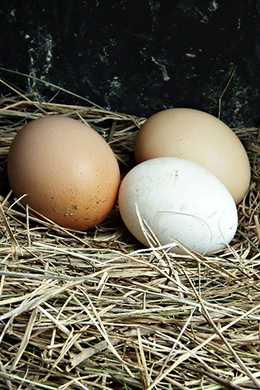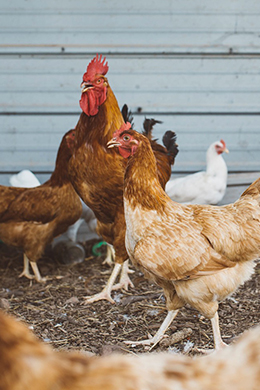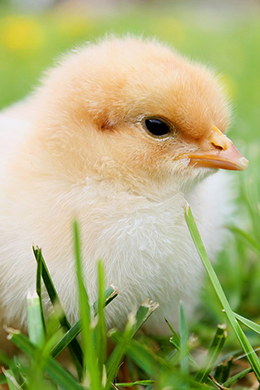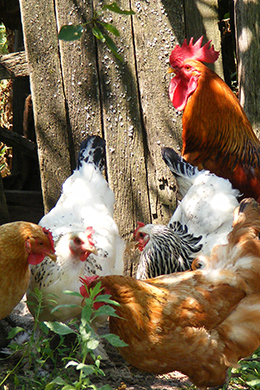If you’ve ever had truly fresh eggs — that is, eggs that were laid that morning — you know you can taste the difference. They taste better and are more nutritious than store-bought eggs. In addition, if the eggs come from your own backyard chickens, you also know exactly what went into that omelet you’re frying up. Maintaining a backyard flock is an affordable and enjoyable way to source your own food, and The Cheshire Horse has everything you’ll need to develop and maintain your own flock of backyard chickens.
 Benefits of Backyard Birds
Benefits of Backyard Birds
Most people raise chickens for their fresh, delicious, and nutritious eggs. There are many other benefits of raising your own flock, one of which is companionship. Backyard birds make fun and friendly pets that are relatively easy and inexpensive to maintain. In fact, the entire family can get involved with their care. This is a great way to teach children about responsibility and compassion for animals. Poultry also provide a natural lawn fertilizer, as well as chemical-free bug and weed control. You may be surprised at just how much you grow to love your birds once you start your own flock.
 Free Range: All It’s Cracked Up to Be?
Free Range: All It’s Cracked Up to Be?
Free ranging is great for chickens if you have the space available, but shelter from the weather and protection from predators are critical for healthy birds. You also want to make sure your birds don’t wander off! They require minimal space; a good general guideline is two square feet per bird for the coop and four square feet per bird for the run. Throughout Chick Days, we carry a variety of one-of-a-kind Amish made coops. Before you set up your chickens’ new home, check your local laws and ordinances. This is a great place to start. You may also want to give your neighbors a heads up about your plans.
 Bring in the Baby Birds!
Bring in the Baby Birds!
During Chick Days (mid-March through mid-June), we have a wide selection of poultry breeds available in the store and for order, including chickens, geese, ducks, turkeys, guinea hens, laying hens, meat birds, and bantams. Want to see shades of brown, white, blue, and green in your egg carton? Our staff will help you with your chick breed selections, and special orders are always welcome. When you bring home your new fluffy friends, you’ll need to have everything in place for them. You’ll need a brooder, a feeder and waterer, at least one heat lamp and bulb, bedding, and feed. Chicks will need to stay in a 95° environment for the first week of their life, and then 5 degrees cooler each subsequent week. Your chicks will live in a brooder with a heat lamp for a couple months before they move to the coop. The brooder can be fashioned from a small children’s swimming pool, a stock tank, a box, or anything else that provides proper ventilation and at least two square feet per chick. You might be surprised at just how well baby chicks can fly, so the walls of your brooder should be at least two feet tall. The bedding needs to be absorbent, and it must be changed frequently. We recommend pine shavings.
 Maintaining Adult Birds
Maintaining Adult Birds
Healthy birds are happy birds! Koop Clean is an all-natural chicken bedding consisting of a chopped blend of hay and straw, combined with the unique odor neutralizing ingredient Sweet PDZ. It will help keep your coop fresh and dry. Chick Flic Odor Eliminator consists of clay that controls ammonia and helps dry out your coop and run. Luv Nest Nesting Herbs have natural antibacterial and anti-parasitic properties, making a wonderfully aromatic and healthy addition to coops and living areas. And did you know that chickens go crazy for treats just like horses do? Treats for Chickens and Mealworm Munchies provide a tasty and nutritious way to bond with your birds. Shop more poultry treats.
